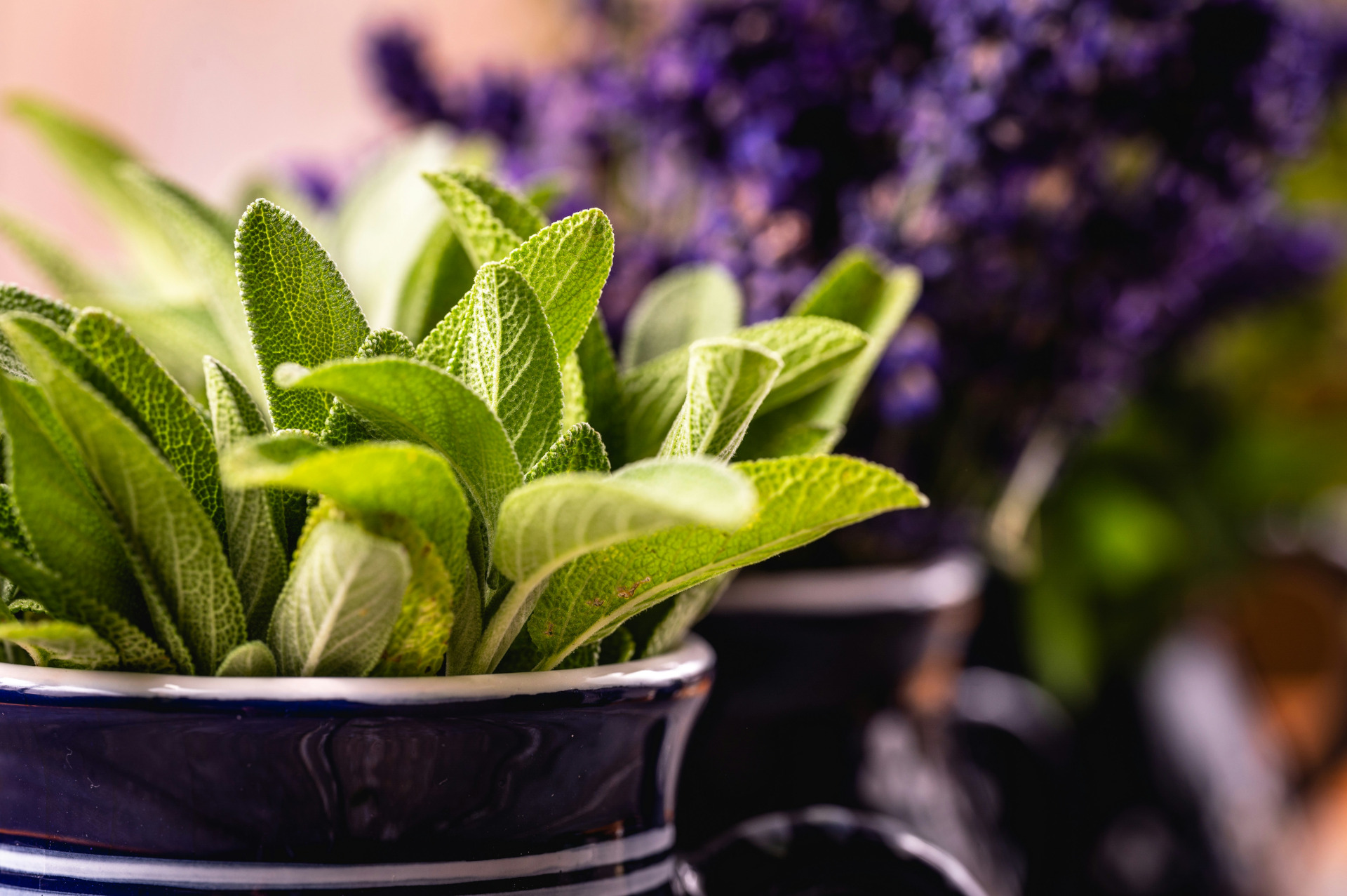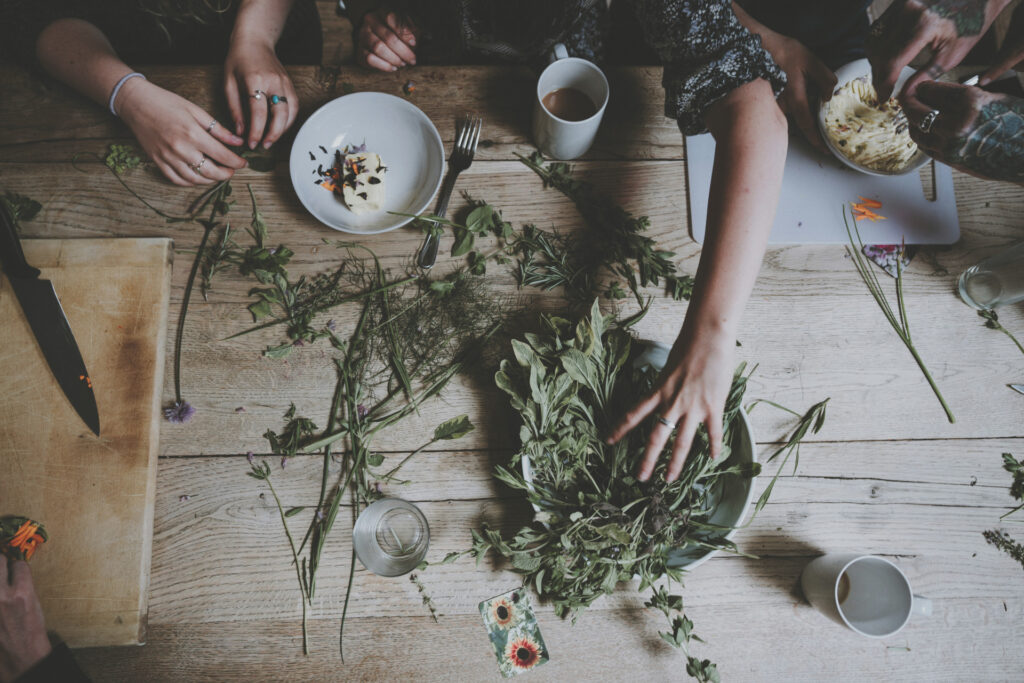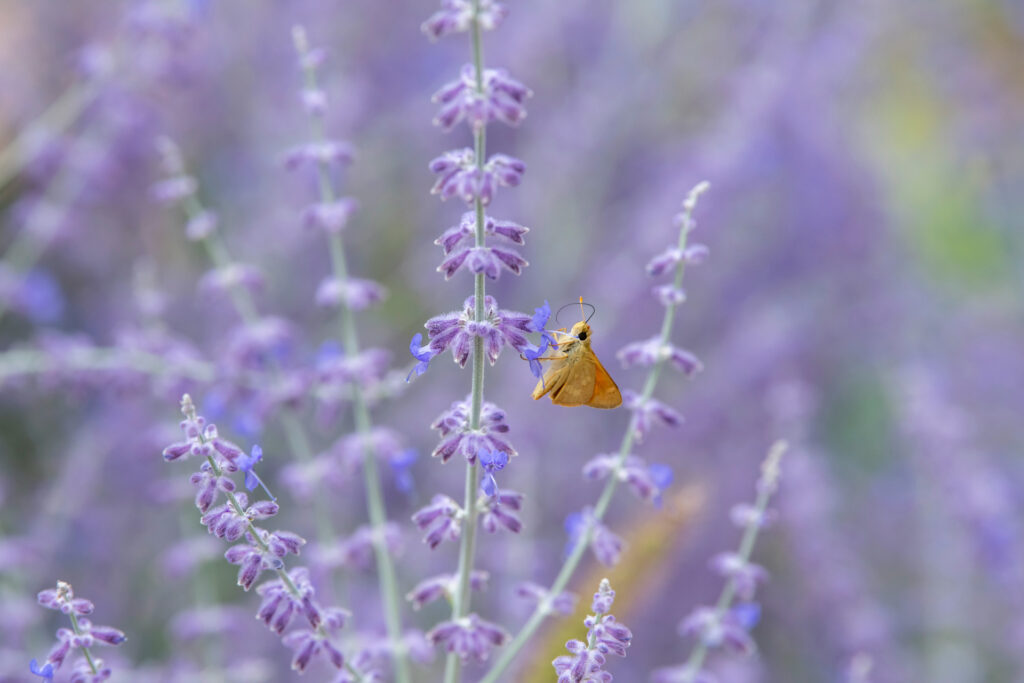
Body + Mind is reader-supported. We may earn an affiliate commission when you buy through some of the links on our site.
When you think of sage, you probably think of Thanksgiving stuffing or its distinctive scent. However, this herb is used for many other purposes, both in and outside your kitchen. Some will be familiar, but some might surprise you. Here are 23 ways sage can be used to delight your senses, enrich your health, boost your spirituality and uplift your home.
It’s is a culinary staple for sure, but beyond stuffing, it has a host of uses.
Because it has an earthy and slightly peppery flavor, sage is a classic pairing for meats like sausage, poultry and lamb.
Fried leaves can be used to create aromatic brown butter sauces for pasta, gnocchi or vegetables. You can also infuse cooking oils with it for a lasting flavor.
Add fresh or dried sage to tomato sauces, cream sauces and all kinds of soups. It will give a deep flavor profile that elevates the dish.

Incorporate it into breads, scones and other baked goods for a savory twist. It’s delicious in croissants, muffins, crackers and even in cakes. Try a lemon and olive oil cake with sage, or a honey and sage brown butter cake.
Explore less common uses, like pairing sage with apples, blackberries or forest fruits, where it enhances the earthy fruitness.
This highly aromatic herb and works well with spirits like bourbon, gin, vodka and tequila. It’s most commonly used in a homemade simple syrup or muddled fresh in a shaker.
In addition to its culinary uses, this remarkable herb boasts a potent nutritional profile, exhibiting numerous proven health benefits. Packed with vitamins, minerals and over 160 distinct polyphenols that act as antioxidants, it is a rich source of vitamin K. Some of its health benefits include:
Sage has antimicrobial properties that can help kill the bacteria that cause dental plaque and cavities. Use it to add to natural toothpaste or make your own mouthwash by steeping it in boiling water, cooling and straining.
Traditionally used to alleviate hot flashes and night sweats, some studies suggest compounds in sage have estrogen-like properties, with research ongoing as to how it might improve menopausal symptoms.

Some research indicates that sage may improve memory and cognitive function, both in healthy individuals and in those with Alzheimer’s disease.
Studies have shown that this herb may help lower blood sugar levels and improve cholesterol profiles by reducing “bad” LDL cholesterol and raising “good” HDL.
Sage contains compounds with anti-inflammatory properties and has traditionally been used to alleviate pain. It may also aid in reducing skin inflammation and promoting healing. Topical balms may combine it with arnica or turmeric for pain relief and muscle soreness. You can also try roll-ons with diluted sage essential oil, which you can apply to the affected areas.
This versatile herb has a long history of traditional and ritual use. If we’re thinking what is sage used for in a spiritual sense, here are some ways this herb is said to help:
The practice of burning sage, known as smudging, is intended to cleanse a space of negative energy and purify the air. The smoke is believed to carry away negativity. This is a popular spiritual practice, but please carry it out with intention and with respect for the native traditions it originates from.

The word “sage” is derived from the Latin sapere, meaning to be wise. In magical practice, it is used to help uncover one’s own secrets and to enhance inner truth, developing wisdom and clear sight.
Sage is associated with Jupiter, the planet of luck, good fortune and prosperity. For this reason, it is often used in spells or rituals to attract prosperity. Try carrying dried sage in a small green pouch in your pocket — you never know!
This herb can be used for a variety of personal care purposes, largely due to its health-promoting properties noted above.
Sage is antibacterial, which helps minimize the bacteria that cause body odor. It also contains astringent properties, which can help to reduce perspiration. Use a simple infusion in a spray bottle as a daily deodorant.
Sage’s properties are excellent for both scalp health and hair appearance. Astringent qualities control oil production on the scalp while antimicrobial properties can limit dandruff. Historically, a strong sage rinse was used to help darken hair or blend in gray. Use after shampooing and conditioning as a final rinse, then leave to air dry.

Those same astringent qualities tighten pores and reduce skin oiliness. This herb is also beneficial for treating blemishes due to its anti-inflammatory properties. Apply a sage infusion with a button pad after cleansing.
This is a classic traditional home remedy with sage. Use an infusion to wash minor cuts and scrapes or apply as a compress. You can also make a poultice with crushed leaves and hot water by mixing it into a paste and applying it directly to a bruise or sprain.
If you’re wondering what is sage used for, don’t stop with the body — it can be useful in your household routines, too.
The antibacterial properties make sage a strong ingredient in homemade all-purpose cleaners. Blend it with white vinegar for a practical and effective stain and spot remover.
Sage scented candles, room sprays and incense freshen the air and create a calming atmosphere. It is often used in incense to dispel evil spirits. In aromatherapy, clary sage induces feelings of euphoria and can also aid in visualization and stress relief.

The herb repels mosquitoes, flies, ticks, and fleas due to its pungent scent. You can smudge with it for this use or crush the fresh leaves and rub them on your skin.
Sage is easy to grow and having some in your garden provides a host of benefits.
This herb is a wonderful companion plant. When planted near vegetables, it can help to deter snails, cabbage moths and some beetles.
Bees, butterflies and hummingbirds are drawn to the nectar-rich flowers of sage. Other pollinators are also attracted to the purple and blue colors of many varieties. Due to its extended blooming period, it can serve as a reliable and consistent food source.
Sage is hardy, drought-resistant and provides good ground cover, making it an ideal choice for sustainable gardens that are resilient to ongoing climate challenges. It is also low maintenance, making it suitable for yards of all types.

What is sage used for? What isn’t it? From culinary delights to personal care, enhanced spirituality and improved sustainability, this ancient herb has earned its place in our kitchens, medicine cabinets, altars, dressing tables and household cupboards. Its potent natural compounds have numerous uses — why not try some out the next time you pick up a bundle of this versatile, tasty herb?
Your email address will only be used to send you our newsletter, and at any time you may unsubscribe. For more information, see our Privacy Policy.